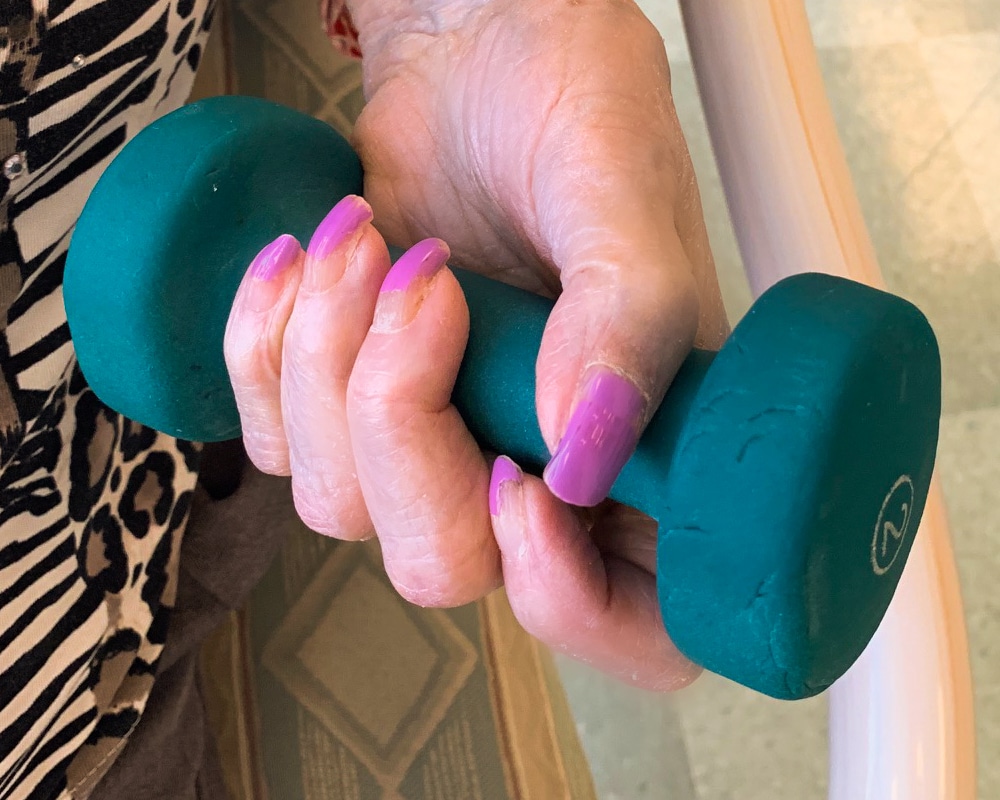We know it’s important to exercise. Now we have one more important reason to get moving.

As we attempt to navigate safe and effective ways to not only survive but thrive during the current COVID-19 pandemic, there’s one thing that we can do to protect our brain health: exercise. Aerobic exercise in particular may help slow the progression of dementia, according to a study published last fall.
The study, in the Journal of Alzheimer’s Disease, followed two groups of older adults with memory issues who did not regularly exercise. As part of the study, one group exercised aerobically for half an hour, four to five times a week. Brain imaging revealed that the group that exercised had less shrinkage of the hippocampus, which is the part of the brain that controls memory. This speaks to the possibility that regular aerobic exercise can help to slow the progression of Alzheimer’s and dementia.
The benefits of exercise in older adults have long been known, and not just to combat dementia. Dedicated exercise helps to increase muscular strength and bone density, improve flexibility and balance, and prevent the risk of falls. Exercise also helps to relieve stress and boost our mood. It helps us to feel younger and stronger, and remain independent longer.
Exercise Tips for Older Adults
The good news is that you’re never too old to start exercising. The professional healthcare staff at Seashore Gardens Living Center offers these tips for older adults who are considering starting an exercise regimen. Remember to check with your doctor first before you begin any exercise regimen. Your doctor can answer questions about how much exercise you should do and the types of activities that are best for you.
- Start with what you can do now. Know that you will be able to build up over time.
- Set a short-term goal of improving your mood and energy. Don’t worry about losing weight or reaching a milestone. Those will come.
- Choose an exercise that you enjoy. You will be more likely to do it.
- Select inspiring music that sets the mood. This will help to energize you.
- Choose a partner and exercise together (virtually). This will keep you accountable.
- Listen to your body. Take breaks when you need to. Stop if you feel short of breath or dizzy. Exercise should be done at a comfortable intensity.
- Celebrate your accomplishments. Schedule relaxation time as a reward for your hard work.
Located on 20 acres in Galloway Township, N.J., the Simon & Sylvia Zisman Seashore Gardens Living Center (SGLC) is a nonprofit home for the aged, guided by Jewish tradition, law, and charity, dedicated to enriching the quality of life for its residents. The 125,000 square foot senior Living Center features a continuum of services which include assisted living, short and long term nursing care, Alzheimer’s care, respite care and full rehabilitation services all under one roof.
See more blog posts here.


